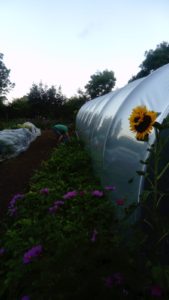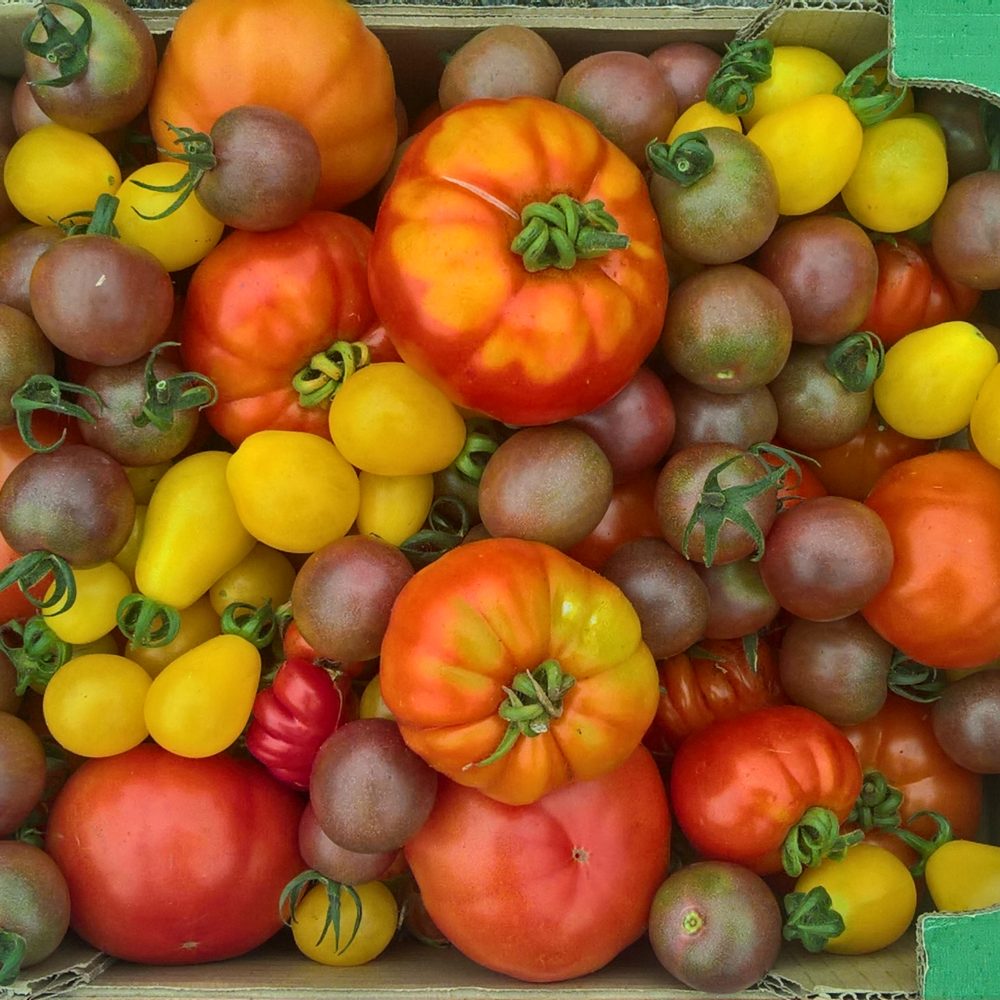
Mid-September. The garden is still awash with colour. Each week we say we will be slowing down, and yet another yield of vegetables appears.
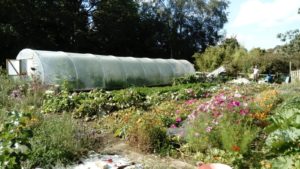
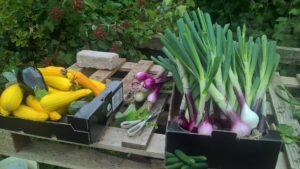
We start to hear stories of how our veg links with the lives of those who feast from Charis Garden. The boy who hates onions but eats the ones we grow. The woman who thought she didn’t like tomatoes until she tasted our varieties. The couple who tells us the veg box is the highlight of their week. The man who says he never thought kale could taste so good. We also share in the joy of feasting from the garden, skipping the vegetable aisle in the supermarket completely. The garden provides.
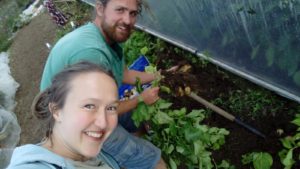
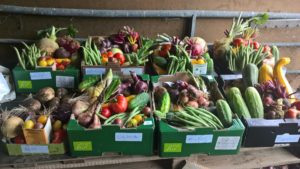
The daily work with soil, plants, rain, sun, slugs and caterpillars is what makes it all possible. By now, the lines on Jeremy’s hands are engraved with clay. Our three year old learns how to lift spuds and pick beans, without pulling down the whole plant. Claire realises she can pick and pack salad leaves with a baby on her back.
In the meantime, word of mouth continues to connect new people to the garden. The local Church of Ireland minister pays a visit, and mid-garden tour, invites Jeremy to speak at the annual Harvest Service. The thirteen year old niece of a friend, whose name is also Charis, comes to visit her garden namesake. Jeremy’s cousin Maebh travels from Sweden to lend a hand for a few days.
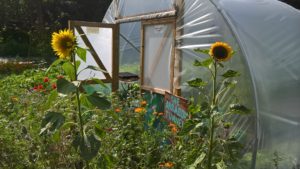
We are struck by the overwhelming weight of the garden, the way it gravitates us into rhythms of hard and constant labour. We are also struck by the hunger of our local community for good food, grown well. There is no shortage of people who want to eat what we grow. We feel the push to grow more, supply more, get bigger, better and busier. We discuss packing sheds and cold storage solutions as the Summer heat intensifies. Jeremy enrolls in a business course one day a week. We negotiate the rollercoaster of uncertainty involved in growing seasonal produce for a local community. Do we create a pick up point? Do we deliver? Do we have a fixed cost? Do we offer choice in weekly boxes? What happens if everyone goes on holidays all at once? Why are we growing all this stuff anyway? Should we put that first beautiful head of broccoli in a veg box for sale, or keep it for ourselves?
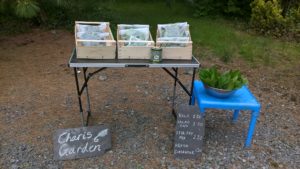
We come back to the garden. The bees hum their way through the Phycelia and Clover. Sunflowers stretch and open. We observe how everyone who enters Charis Garden is touched by how beautiful, how alive it is with the fruits of flowers and food.
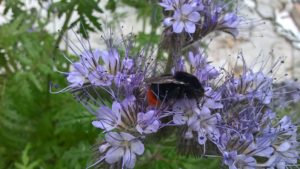
Charis is a Greek word meaning grace: God’s way of loving the earth and all people. At times, in the stretch of the busy summer, it is easy to forget that we labour here in the midst of grace – God’s love, joy and beauty – and not primarily under the hard and unforgiving laws of market production. Our first priority is to nurture the garden so that it, in turn, can bring blessing to the lives of the people around us. If we can’t be kind to ourselves, we can’t extend this charis to others.
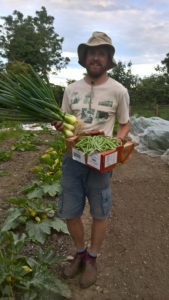
Three words define what Charis Garden is all about: Soil, Soul and Solace. For months now, we had poured our efforts into the soil, and the fruits of the soil’s harvest are richly evident. We are now beginning to explore the garden’s purpose as a place of soul-food and solace for people too.
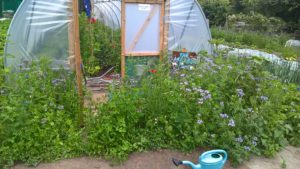
As Autumn approaches and the garden begins to slow down, we sink deeper into the furrows of our path here, slowing down to reflect on how these aspects of the garden might develop. We plan our sowing schedule and think ahead through winter into spring again.
We also sow into Soul and Solace by beginning an intentional rhythm of prayer to keep our hearts centred in the presence of the God of grace. We sit with the uncertainty as seeds pressed into soil trust that darkness will not hinder their growth into light.
